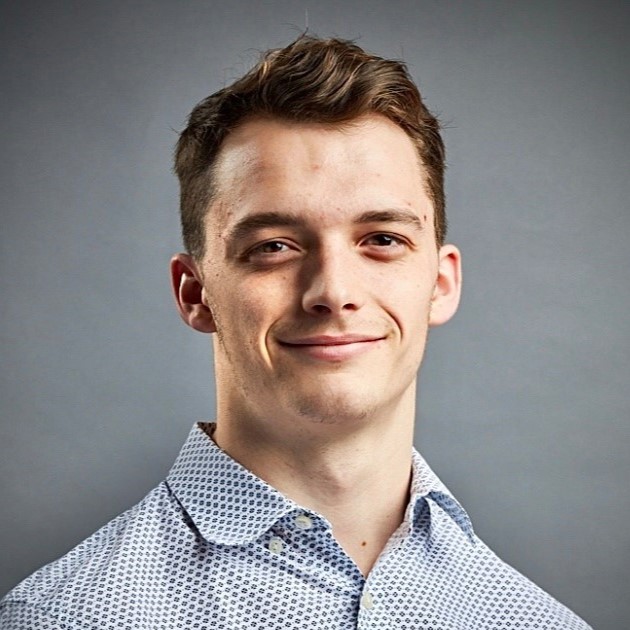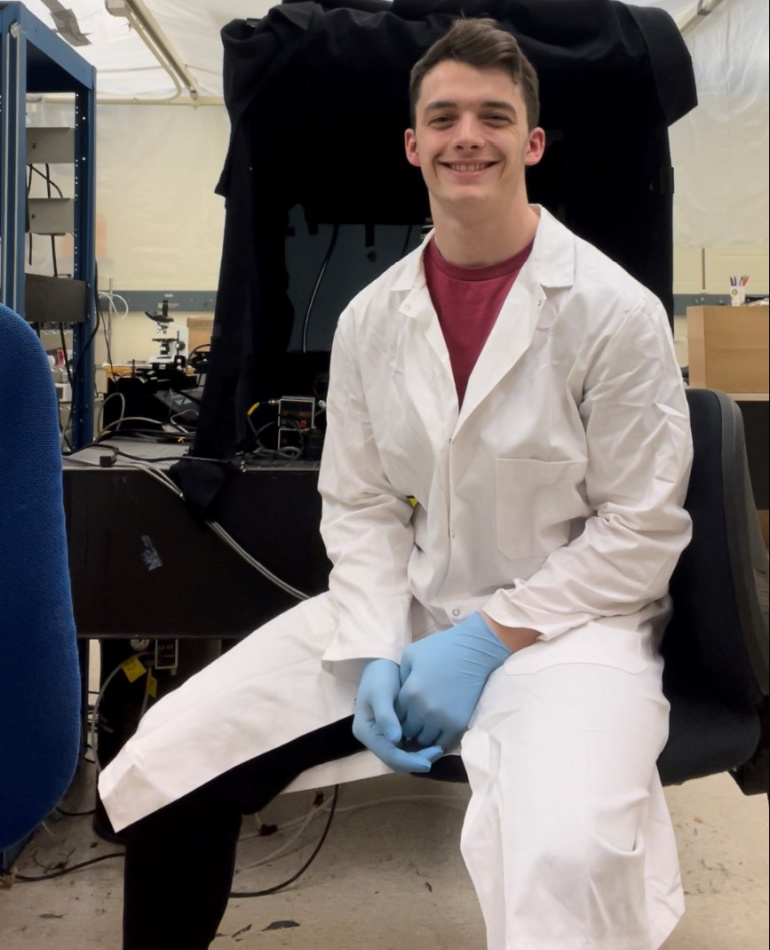
Sophomore Justin Nelson admits that when he told his parents he was going to attend Wayne State University, they weren’t super enthusiastic. Nelson is from Muskegon and Detroit was a long way from home.
Fast forward a few years, and Nelson’s parents are amazed by opportunities he’s had at Wayne State and were blown away when he recently informed them that he was awarded one of NASA’s Michigan Space Grant Consortium’s Faculty Led Fellowships for Undergraduates.
“My parents have been incredibly supportive,” Nelson said. “I called them after I found out about the fellowship, and now they are Wayne State's number-one fans. They said, ‘We can't believe the opportunities this place has brought to you. It’s like your career, education and knowledge are just fast tracked.’ They are both very successful. When I tell them what I’m doing, they are in awe. ‘You’ve been in school for less than two years and now you’re going to be doing work with NASA?’ They are almost dumbfounded — which, at times, I also am when I look at it. But that was a fun phone call to make.”
Nelson, a biomedical engineering major, will work with Wayne State Associate Professor of Physics Ashis Mukhopadhyay on the “Development of self-healing polymer composites.”
“The idea is to create a self-healing material when there’s little micro tears or scratches from taking off into space,” Nelson said. “You can’t send a team up to go fix something once it’s in space, so whatever you send up is everything you have. The idea is to create a self-healing material so when it does run into any kind of debris or anything like that, it's able to heal itself and prevent long-term damage.”
“This project is looking at the properties associated with a self-healing sustainable material that would be analogous to wound healing of our skin,” Mukhopadhyay said. "In the presence of a crack or defect in the object, a polymer will push nearby molecules toward the defect site to repair the damaged region. From there, we can investigate the effects of different particle sizes, shapes and their interaction on process to find the optimal physical properties for such self-healing materials. We will also be able to compare the repaired material’s toughness with the undamaged material’s original state to verify the material is, in fact, self-healing.”

Nelson started working with the project after physics professor Karur Padmanabha recommended him to Mukhopadhyay, who was looking for students to help with his research.
Mukhopadhyay encouraged Nelson to apply for the fellowship. Nelson wasn’t sure about his chances, but when he found he got it, he was eager to break the news to the professor.
“I was in the lab and said, ‘I’m pretty excited about the space grant,’” Nelson said. “He said, ‘It’d be cool if you got it.’ And I said, ‘No, we got it.’ He said, ‘Oh, congratulations, you’re one step closer to being an astronaut.’”
Nelson said he’s enjoyed working with Mukhopadhyay and is constantly learning.
“I'm very new to all this research, so he’s taken the lead on a lot of this, he was the one that kind of created this idea and formulated it,” Nelson said. “He sat me down and explained it to me. I'm in the lab a few days a week, so we were talking a lot and he proposed the idea. I thought it was really cool. It seems like all the stuff I'm learning in class. The fact that I can actually apply it to something this practical is really fascinating.”
Mukhopadhyay said Nelson has been a great fit and the fellowship has provided him with a great opportunity.
“Justin is not afraid of many obstacles that some may deem as too hard or too advanced,” Mukhopadhyay said. “He accepts challenging projects and tasks that he may not fully understand and pushes himself to learn such tough topics to ensure quality results. Justin’s work ethic has also been a delight; he has maintained a 4.0 GPA as a full-time student, while working part time in the lab and balancing his other job on the weekend. Justin continuously shows up to the lab with an eagerness to work and make progress on his current projects, while keeping a strong line of communication of the project’s status.
“This fellowship was not only a good opportunity to conduct quality research, but it also provided Justin with a strong foundation for his future projects, as this will present a steep learning curve that he must overcome regarding the physical and chemical applications of the project along with having to find creative ways to carry out such an experiment. These experiences are extremely valuable for undergraduates like Justin, since the takeaways he will get from this fellowship will help him in whatever career path he may choose.”
Nelson isn’t quite sure what career path he wants to follow yet but said he most likely will go to graduate school.
“Grad school seems very likely, especially at Wayne State, with its great program, and you can get your master’s degree pretty quickly,” Nelson said. “Whether I want to pursue my Ph.D. or not is kind of up in the air, but part of why I chose my degree is so I could if I wanted to. It all kind of depends on where I want to be when that time comes.
“I really enjoy engineering in practice, so I’m going to go into some sort of biomedical engineering field; maybe biomechanics, like safety equipment for cars. That’s where I currently see myself, but that could all change in two years. If you asked me two years ago, I would never in a million years guessed I’d be doing what I am right now. But I’m excited for the future.”
